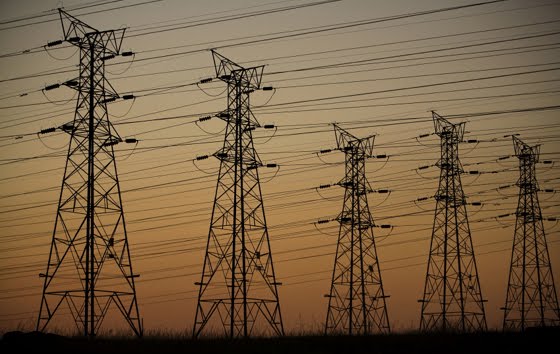Government unveils Proposed Laws to protect Kenya’s critical infrastructure

The Government will soon set up a special unit to protect Critical infrastructure in the country. The unit is proposed by a bill formulated to look into the protection of Critical Infrastructure, and will be domiciled at the Ministry of Interior and Coordination of National Government. This is aimed at ensuring full coordination as well as enforcement of the regulations in both national and county government.
The unit is tasked with the responsibility of coordinating, approving, designing, planning, deploying, and maintaining crucial infrastructure with powers to issue penalties to defaulters. The draft bill has also proposed creation and maintenance of critical infrastructure register with a database of all infrastructures that stakeholders can refer to.
“Our development and attraction of investors hinges on the protection of our critical infrastructure. That’s how we ensure fuel moves from Mombasa to other parts of the country, detect and act on terrorism threats or communicate. Better coordination will lead to better investment and fair prices transferred to the mwananchi,” said Dr Fred Matiang’i Cabinet Secretary, Ministy of ICT.
According to sources, the Government and private sector players lose an estimated 2 billion shillings annually arising from various forms of damage and degradation to infrastructure in Kenya.
“This figure does not include indirect losses such as loss of business or losses arising from the denial of citizens of essential services, which would aggravate the situation,” the CS explained. He was speaking at a media briefing where the taskforce tasked with developing the bill handed over the Draft Infrastructure Protection Bill to him. Dr Matiang’i will then present the bill to the Attorney General for refining before being passed over to Cabinet and Parliament for discussion and enactment and will become law after the Presidential assent. It’s expected to be ready for Parliament before Christmas.
Critical Infrastructure Assets are identified as physical and virtual assets or facilities, owned by either private or public entities which are essential to the provision of vital services, and which if destroyed, degraded or rendered unavailable, would impact on the social or economic well-being of the nation or affect Kenya’s ability to conduct national defense and security. They cover crucial assets in electricity, roads and infrastructure, Information, Communication and technology, Security and energy sectors.
“We have benchmarked with other countries around the world and we are certain this bill will address the many challenges experienced by stakeholders,” reported Alice Kariuki, the Chairperson of the Taskforce and the Director Regulatory Affairs, Airtel Africa.
Once in force, the Inspector General of police will have special mandate to provide for the supervision, surveillance and prosecution of those who destroy these critical assets.
The highest penalty for those who bridge the law is a fine of not less than five million shillings or an imprisonment for a term of not less than ten years.
“We will be raising awareness among Kenyans on the need to safeguard the assets. There will be personal liability for those who willingly on unwillingly damage critical infrastructure for example knocking down traffic lights,” said Ms. Kariuki.
The critical infrastructure sectors have faced tremendous challenges that have undermined their efforts in delivering services to the people of Kenya. Some have no legal framework guiding their development while others lack the inter-ministerial or inter-agency implementation mechanism that would assist them maximize on each other’s strengths. Still others are competitors and cannot be expected to work in harmony. The challenges that cut across the sectors include:
- Missing or weak laws to harmonize design, planning, deployment and management of critical infrastructure thereby making it easy for destruction and incidental damages of critical infrastructure.
- Man – made activities such as vandalism, terrorism, Fraud through illegal connections, illegal acquisitions, network piracy and spectrum interferences through jammers; encroachment on water towers and way-leaves especially by contractors/developers
- Inadequate penalties for offences in the sectors.
- Natural causes derived from climate change such as floods
- Lack of skilled workforce to support the protection of critical infrastructure.
- Lack of coordination and required attention to critical infrastructure.
The legislation proposes that the unit ensures the smooth implementation of critical infrastructure by developing standards to be followed before any critical infrastructure program is implemented. These standards, will stipulate rules and regulations to be followed by all those planning to put up critical infrastructure.
Some of the main functions of the agency, to be headed by a Director and constituting council members from both public and private entities include:
- identify and designate critical infrastructure assets;
- implement strategies and measures for the protection of critical infrastructure;
- establish an integrated database of information on critical infrastructure;
- maintain a register of all the assets and locations declared as critical infrastructure;
- coordinate the planning, development and implementation of security measures and strategies for the protection of critical infrastructure;
- conduct research and gap analysis to ensure continuous development in matters relating critical infrastructure;
- prepare and implement critical infrastructure programmes;
- categorize and register different classes of critical infrastructure;
- deploy relevant security measures for the protection of critical infrastructure;
- advise and make recommendations to the Committee on matters relating to critical infrastructure; and perform any other function related to the implementation of this Act.
Members of the public can access the draft document on www.icta.go.ke and send their contributions to critical@ict.go.ke
At the meeting, the taskforce also handed over to Dr. Matiang’i the policy document and task force report.



